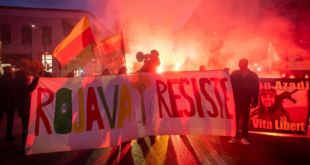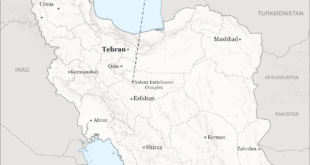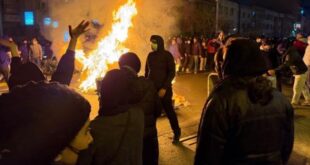RABAT (Reuters) — Morocco prepared to welcome home on Thursday the last 404 prisoners of war (PoW) who were held by Western Sahara’s exiled Polisario Front independence movement, many of them for almost two decades.
The International Committee of the Red Cross (ICRC) said the release in Tindouf, Algeria, followed US mediation. The men were being flown to Morocco to be reunited with their families.
The release could ease tensions between Morocco and Algeria in a region where the West wants stability because of fears it could be a possible source of Islamic militancy.
“The Polisario Front today [Thursday] released all the Moroccan prisoners in its custody,†an ICRC statement said.
A government source in Rabat said the prisoners were expected to land in the city of Agadir, about 600km south of the Moroccan capital, soon after 5:30pm (1730 GMT).
In previous handovers, released prisoners were taken to a military base in Agadir for a day or two of medical checks before being meeting their families.
Over the years, the ICRC has repatriated more than 2,000 Moroccan prisoners captured by the Polisario in a 16-year-long guerrilla war with Morocco over Western Sahara. A UN-brokered ceasefire was clinched in 1991, ending the conflict.
Creating climate for peace
Polisario said the release was intended to create an atmosphere helpful to efforts by a newly appointed UN envoy to solve the nearly 30-year-old dispute over the desert territory, mostly held by Morocco but claimed by the Algeria-backed Front.
“This will contribute, we hope, to generating a climate which will favour a dynamic for peace, which we would like to believe will be irreversible,†Mohamed Sidati, Polisario’s minister delegate for Europe, said in a statement carried by a Norwegian non-governmental organisation that backs the Front.
Algeria and Morocco have had strained relations since independence from colonial ruler France in 1962 and 1956 respectively. The Western Sahara dispute has hampered three decades of efforts to normalise ties.
The ICRC said in a statement that the repatriation of the last Moroccan prisoners “ends a long period of internment and marks an important step in resolving the humanitarian consequences of the conflict in the Western Saharaâ€.
Officials of the neutral Geneva-based agency regularly visited the detainees at camps in southwest Algeria, providing medical care and passing messages to relatives.
US Senator Richard Lugar, chairman of the Senate Foreign Relations Committee, had been due to oversee the release on behalf of President George W. Bush. It was not immediately clear if he was in Tindouf for the occasion.
Lugar met Algerian President Abdelaziz Bouteflika in Algiers on Thursday, the Algerian news agency APS reported. He was due in Morocco on Friday to meet King Mohammed VI and Prime Minister Driss Jettou, US diplomats and Moroccan officials said.
Morocco has refused to allow a vote on self-determination promised in the UN-brokered ceasefire.
The conflict was triggered by Morocco’s seizure of the northwest African desert territory of about 260,000 people shortly after colonial power Spain withdrew in 1975.
The ICRC said it would pursue efforts to clear up the fate of “all those reported missing in connection with this conflict.†More than 250 people on each side are still listed as missing, according to ICRC spokeswoman Nada Doumani.
Former Moroccan prisoners of war lobbying for the release of those still held by the Polisario won support in the US Congress earlier this year.
 Eurasia Press & News
Eurasia Press & News


